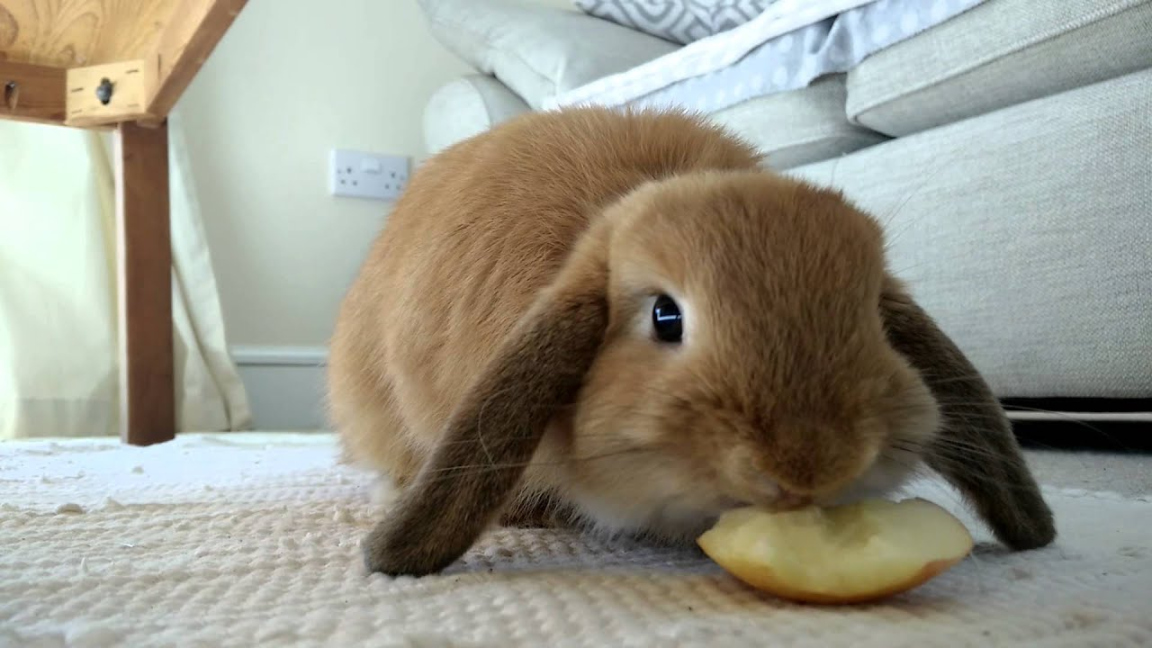Do Rabbits Eat Apples In The Wild?
Rabbits are adorable creatures that are often associated with munching on carrots. However, their diet extends beyond just carrots, and they have a natural inclination towards a variety of fruits. One common question that arises is whether rabbits eat apples in the wild. Let’s explore this topic to gain a better understanding of a rabbit’s dietary preferences and habits.

The Natural Diet of Wild Rabbits
Wild rabbits primarily survive on a herbivorous diet consisting of various grasses, weeds, and leafy greens. Their sharp front teeth and strong jaws allow them to graze on vegetation easily. Their digestive system is designed to process and extract nutrients from fibrous plant materials, making them well-suited for consuming high-fiber diets.
The Appeal of Apples to Rabbits
While apples may not be a part of a wild rabbit’s natural diet, they are still highly attracted to the sweet and juicy taste of this fruit. Apples are known to be a healthy treat for domesticated rabbits, as they provide them with essential vitamins and minerals. However, it’s important to note that apples should only be given in moderation, as excessive consumption can lead to digestive issues and weight gain.
Can Wild Rabbits Find Apples?
In their natural habitat, wild rabbits do not typically come across apples. Apples are not native to most regions inhabited by wild rabbits, and these fruits are not a part of their natural ecosystem. Therefore, it is unlikely for wild rabbits to find apples available for consumption in the wild.
Do Wild Rabbits Eat Apples If Given the Opportunity?
If wild rabbits stumble upon an orchard or an area where apple trees grow, they may attempt to taste an apple out of curiosity. However, it is important to remember that wild rabbits primarily rely on their natural diet for survival, and apples would not be a significant part of their regular food source.
Feeding Apples to Domesticated Rabbits
Domesticated rabbits can enjoy the occasional apple treat as long as it is given in moderation. Apples can be a healthy addition to their diet due to the presence of essential vitamins, including vitamins C and A. However, it is crucial to regulate the intake of apples to prevent any adverse effects on their health.
Here are some guidelines to keep in mind when feeding apples to domesticated rabbits:
- Introduce apples gradually into their diet to avoid digestive issues.
- Choose organic apples, if possible, to minimize pesticide exposure.
- Wash the apple thoroughly to remove any potential residue.
- Remove the seeds and core of the apple before feeding it to your rabbit.
- Slice the apple into small, bite-sized pieces to prevent choking hazards.
- Offer only a small amount of apple as a treat, and avoid feeding it daily.
- Monitor your rabbit for any adverse reactions or changes in their digestive patterns.
Frequently Asked Questions (FAQs)
1. Are apples toxic to rabbits?
No, apples are not toxic to rabbits. However, the seeds and core of the apple should be removed before feeding it to your rabbit.
2. Can rabbits eat apple peels?
Rabbits can eat apple peels, but they should be given in moderation. It’s essential to wash the apple thoroughly to remove any potential residue.
3. How often can rabbits eat apples?
Rabbits can eat apples as an occasional treat. It is recommended to offer apples once or twice a week, in small quantities.
4. Can apples cause digestive problems in rabbits?
Feeding excessive amounts of apples or introducing them abruptly into a rabbit’s diet can lead to digestive issues. It is important to introduce apples gradually and monitor your rabbit’s response.
Understanding the dietary preferences of rabbits, both wild and domesticated, is essential for providing them with a well-balanced and healthy diet. While wild rabbits may not typically encounter apples in their natural habitat, domesticated rabbits can enjoy apples as an occasional treat. Remember to follow the recommended guidelines for feeding apples to your rabbit, and consult with a veterinarian if you have any concerns about their diet or health.
Related Articles…
Copyright Notice:
This website utilizes images found online, all copyrights are retained by their original owners. If you would like an image removed, kindly contact us.